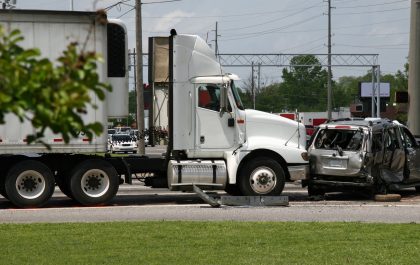What is Telematics?
The coming together of two major techs – Telecommunications & Informatics gave birth to Telematics. Telematics is defined as the branch of information technology which deals with the long-distance transmission of computerized information. The most common application of the Telematics system is in Fleet Management.
Telematics technologies collect & transmit data on vehicle use, maintenance requirements & automotive servicing. Through effective monitoring of the entire system, it is now possible to gain a comprehensive view of the health, profitability & productivity of the entire fleet.
Telematics enables fleet managers to save money through improved fleet routing. Identifying inefficient routes and dispatching of more local vehicles reduces the overall distance and/or time to complete a particular route, improving staff productivity and reducing operational costs.
What are the benefits of the Telematics system?
Telematics system offers a viable solution to better manage the fleet. Through the integration & adoption of modern technologies, it offers a wide range of solutions that promise to control costs, boost productivity & improve accountability. Telematics systems are driving the opportunities for change.
A Few Notable Benefits of a Telematics System are –
- • Safety
Better safety is achieved through constant monitoring & feedback. Telematics systems work at reducing potential risks. During an emergency, due to the ability to call for support, situational escalation can be avoided in entirety or managed effectively. Telematics also allows fleet managers to keep track of their fleet and driver behavior to ensure that driver and vehicles are safe. Real time aural alerts to drivers in event of rash driving, cornering, distracted driving etc. help avoid any unforeseen risk.
- • Better Fuel Management
Drivers with aggressive driving styles will on average spend 10.9% more fuel while experienced drivers can use up to 30% less fuel than a conventional driver. By better routing, better monitoring of driving styles, identifying contributors & reducing inefficiencies, a significant reduction in fuel costs can be achieved through Telematics system implementation.
- • Lesser Maintenance
By prompting a proactive maintenance schedule through regular monitoring of service intervals, actual vehicle status, potential failure risks & driver approach, the maintenance costs can be reduced by following a preventive maintenance routine. The total effective downtime of the fleet can be reduced significantly. Monitoring vehicles allows fleet managers to keep track of vehicle’s information in real time, so that they can proactively organise servicing and prevent any build-up of issues that may result in further spending. This can improve overall operating costs as vehicles will avoid unexpected breakdowns impacting on operations.
- • Increased Productivity
With a safer & happier work environment, reduced maintenance costs, reduced downtime & better monitoring & management of the entire fleet, the productivity of the system is greatly improved. Information like driver behavior, driver hours and details of routes taken are all recorded meaning that there is a feedback system which allows room for improvement within the company leading to improved productivity and reduced operating costs.
What does the future hold for Telematics?
The adoption of telematics services – devices which combine telecommunication and informatics – in the transportation and logistics segment is expected to reach the highest total installed base by 2025. The worth of Telematics is well established. As more & more managements implement the system to better manage their fleet, Telematics is poised for exponential growth. New applications are constantly developed to take advantage of modern systems and the latest technologies.
With assured benefits like cost reduction, productivity increase & improved accountability, Telematics is set to become an integral & indispensable component of all modern fleet operations.





